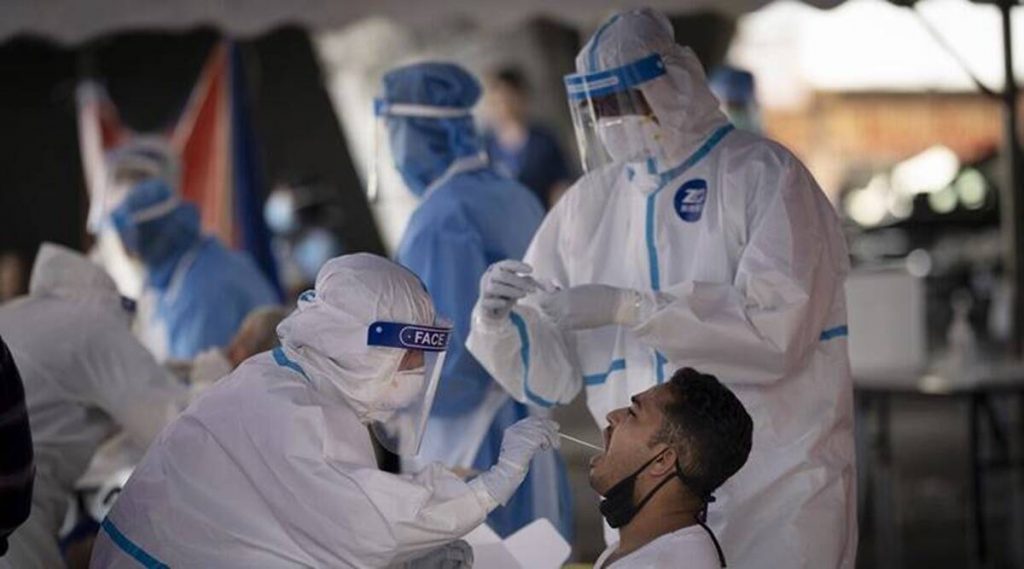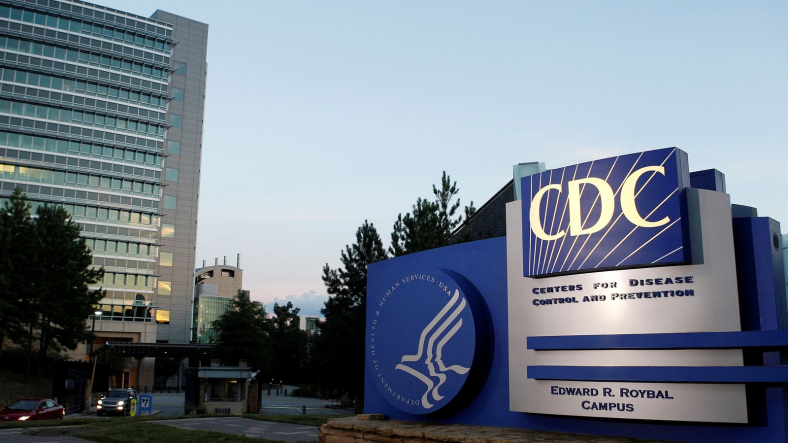CDC Announced Latest Updated CDC Covid Guidelines |COVID-19|
CDC Covid Guidelines – The season of the virus is here. During the winter season, the United States got hit by two of the most notorious viruses in the world. Before 2019, the United States was only struggling with flu infection during the winter season, but COVID-19 has also joined the party.
In the last two winters, we have seen a huge competition between COVID-19 and flu during the winter season. You might not know, but we did not record many cases of flu during the last two winter seasons just because of COVID protocols.
Yes, COVID protocol aura COVID guidelines are also capable of preventing the infection of flu. These guidelines are not just associated with COVID-19, but they can also prevent the infection of several other diseases.
The season of COVID-19 and flu has arrived, and so do the CDC COVID guidelines. The Centers for Disease Control and Prevention suggest everyone follow their CDC COVID guidelines to prevent the infection of COVID-19 as much as possible, along with the infection of other viruses.
Table of Contents
CDC COVID Guidelines for Quarantine
As per the latest CDC guidelines for quarantine, the Centers for Disease Control and prevention do not discriminate between people. Yes, regardless of their vaccination status, everyone is suggested to get themselves isolated as early as they find their COVID infection.
Even if you believe you have symptoms associated with COVID-19, you should isolate yourself till you receive your results. People who received negative test results after experiencing some symptoms associated with COVID-19 are suggested to end their isolation.
At the same time, people who received positive test results are suggested to follow the full COVID protocol and isolation guidelines. The CDC has lifted extra benefits for people who are fully vaccinated and up to date with their COVID vaccines.
The latest variants of the COVID virus suggested that people are much more infectious for the first five days they start experiencing symptoms associated with the virus.
- If you have recently tested positive for COVID-19, try to stay in quarantine or isolation for at least five days from the day you started experiencing symptoms.
- You should wear a high-quality mask if you are around anyone during your isolation and till the 10th day of your symptoms.
- You should avoid going to any places where you are not able to wear a mask.
- Apart from that, you should also try to avoid travel until the 10th day your symptoms start.
- Try to stay in a separate room, use a separate bathroom, and use separate utensils, if possible.
- You can monitor your symptoms, and if you are experiencing recovery, you can end your isolation after five days.
You should not end your isolation or quarantine if you are not able to spend 24 hours fever free without using any fever-reducing medication. People who have ended their quarantine after the fifth day are suggested to keep following the COVID protocols until the 10th day.
Lastly, people who have ended their isolation are also advised not to visit anyone who is declared as a high-risk individual from a severe infection of COVID-19.

CDC COVID Guidelines for Vaccine
The second most important CDC COVID guidelines are for the COVID vaccine and its booster shots. Since the very first day of the launch, the Centers for Disease Control and Prevention has been suggesting everyone get clear self-vaccinated with COVID vaccines.
That is why the CDC has been driving one of the biggest COVID vaccine drives in the world without any cost. Yes, Americans can get themselves vaccinated without paying anything.
Primary Series
The first set of CDC COVID guidelines for vaccines is for the primary series. Even though the Centers for Disease Control and Prevention has divided these guidelines according to each, they are somewhat the same.
- Everyone above the age of six months is eligible to receive a three-dose primary series of COVID vaccines made by Moderna or Pfizer.
- Everyone must maintain at least a four weeks gap between their three shots of the primary series.
- The gap between different shots of the primary series of primary vaccines can be a little bit different.
- For more information regarding the primary series and the gap between COVID vaccines, you should consult with your healthcare provider.
- Everyone above the age of 12 will have the option to get themselves vaccinated with the primary series of novavax COVID vaccine.
The Centers for Disease Control and prevention do not suggest anyone get themselves vaccinated with Johnson and Johnson COVID vaccine. It is only recommended for people who are allergic to other COVID vaccines or who don’t want to get themselves vaccinated with other options.
To get yourself vaccinated with Johnson and Johnson COVID vaccine, you might have to consult with your healthcare provider.
Booster Series
The CDC has also changed its booster series guidelines, and now everyone above the age of 5 is eligible to receive updated booster shots in the country. People who have already received the primary series are suggested to get vaccinated with the booster series as early as possible.
- Everyone above the age of five years is eligible to receive an updated booster shot of the COVID vaccine.
- You must maintain at least a two months gap between your last shot of the primary series and the updated booster shot.
- The Centers for Disease Control and prevention have only approved the updated booster sort of Pfizer, Novavax, and Moderna.
- Other COVID vaccine manufacturers are yet to receive the approval for their bivalent booster shot.
People who have already received the 4th dose of the COVID vaccine, also known as an updated booster shot, will be considered up to date with the COVID vaccine. Previous guidelines for being up to date with the COVID vaccine have recently changed, and everyone should get self-vaccinated with an updated booster shot to receive the status once again.
What is new with CDC COVID guidelines?
The Latest CDC COVID guidelines suggest that everyone above the age of 5 years is eligible to receive updated booster shots in the United States. Previously, the age limit was 12, and now the CDC has lowered it to five years.

